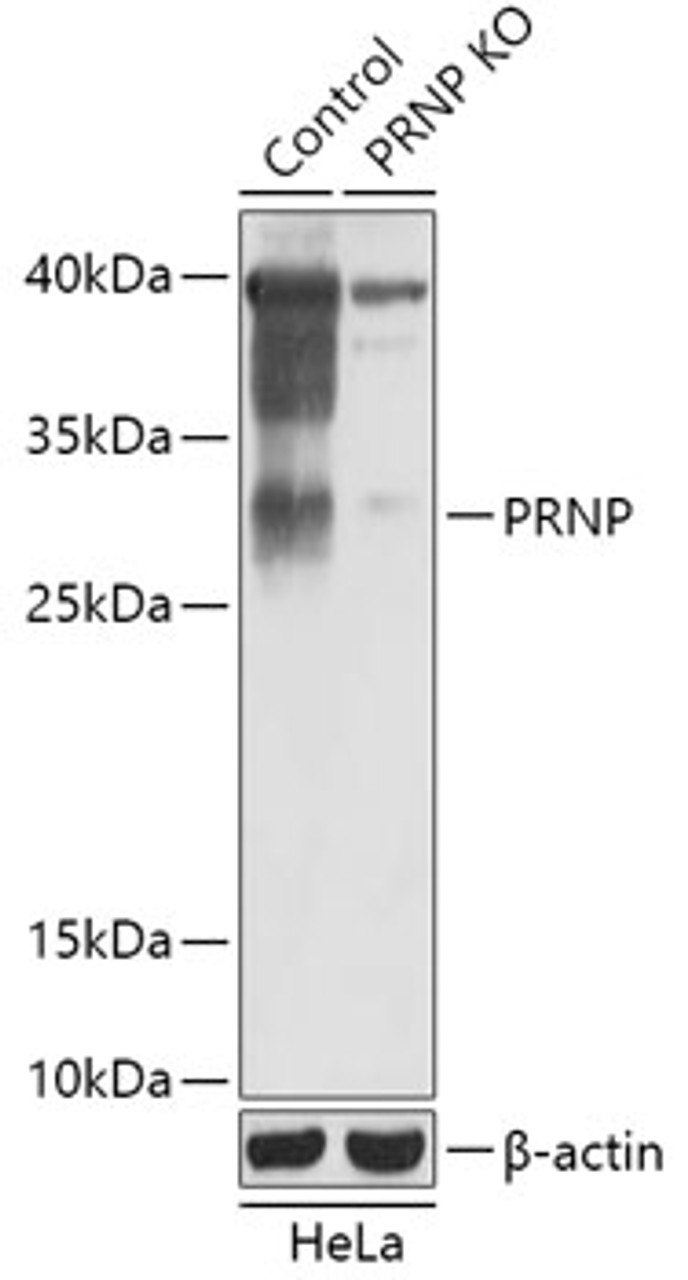Product Description
PRNP Antibody, KO Validated | 18-247 | ProSci
Host: Rabbit
Reactivity: Human, Mouse, Rat
Homology: N/A
Immunogen: Recombinant fusion protein containing a sequence corresponding to amino acids 23-230 of human PRNP (NP_001073592.1) .
Research Area: Immunology, Neuroscience, Stem Cell
Tested Application: WB, IHC
Application: WB: 1:500 - 1:2000
IHC: 1:50 - 1:200
Specificiy: N/A
Positive Control 1: HeLa
Positive Control 2: N/A
Positive Control 3: N/A
Positive Control 4: N/A
Positive Control 5: N/A
Positive Control 6: N/A
Molecular Weight: Observed: 30kDa
Validation: Antibody is Knockout validated.
Isoform: N/A
Purification: Affinity purification
Clonality: Polyclonal
Clone: N/A
Isotype: IgG
Conjugate: Unconjugated
Physical State: Liquid
Buffer: PBS with 0.02% sodium azide, 50% glycerol, pH7.3.
Concentration: N/A
Storage Condition: Store at -20˚C. Avoid freeze / thaw cycles.
Alternate Name: PRNP, prion protein (p27-30) (Creutzfeldt-Jakob disease, Gerstmann-Strausler-Scheinker syndrome, fatal familial insomnia) , ASCR, CD230, CJD, GSS, MGC26679, PRIP, PrP, PrP27-30, PrP33-35C, PrPc, CD230 antigen, major prion protein, prion protein, prion protein (p27-30) (Creutzfeld-Jakob disease Gerstmann-Strausler-Scheinker syndrome, prion protein PrP, prion-related protein, KURU, AltPrP, p27-30
User Note: Optimal dilutions for each application to be determined by the researcher.
BACKGROUND: The protein encoded by this gene is a membrane glycosylphosphatidylinositol-anchored glycoprotein that tends to aggregate into rod-like structures. The encoded protein contains a highly unstable region of five tandem octapeptide repeats. This gene is found on chromosome 20, approximately 20 kbp upstream of a gene which encodes a biochemically and structurally similar protein to the one encoded by this gene. Mutations in the repeat region as well as elsewhere in this gene have been associated with Creutzfeldt-Jakob disease, fatal familial insomnia, Gerstmann-Straussler disease, Huntington disease-like 1, and kuru. An overlapping open reading frame has been found for this gene that encodes a smaller, structurally unrelated protein, AltPrp. Alternative splicing results in multiple transcript variants.
 Euro
Euro
 USD
USD
 British Pound
British Pound
 NULL
NULL










